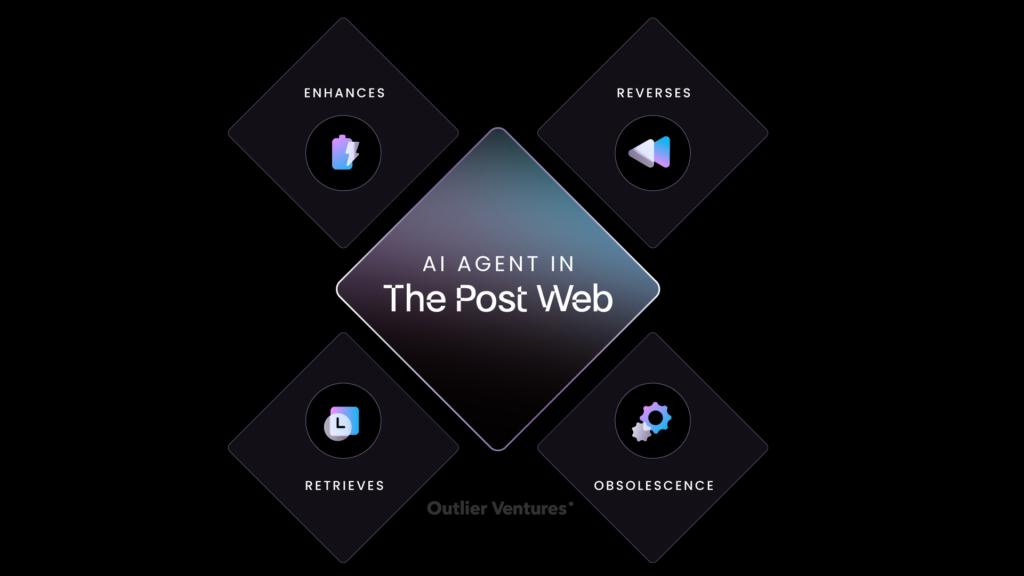Author: Outlier Ventures
Translated by: Felix, PANews
The accelerating convergence of AI and decentralized technology infrastructure is fundamentally transforming the entire internet landscape.
This powerful synergy is giving birth to a new era where autonomous AI agents are no longer just a futuristic concept, but are about to become a reality, redefining how we interact with the internet and conduct economic activities.
However, with the current hype surrounding agents everywhere, the real question is: How will they develop in the future?
Agents are a Completely New Interface Designed for Delegation
These intelligent systems can interpret user intent and execute complex tasks with minimal human intervention, marking a significant transformation that unleashes infinite possibilities for innovation across industries. The framework of the 《The Post Web》 paper and the expected evolution of the current web paradigm provide key context for understanding and leveraging the emerging AI agent landscape.
The paper argues that the core concept of agents lies in delegation. Users no longer need to manually click and browse the internet, but instead delegate their intent to AI agents, which operate on their behalf across services, infrastructure, and markets.

This transformation opens up enormous opportunities, first in driving the tools and infrastructure needed for agent systems. Huge demand is expected in the following areas:
Agent software development kits and training frameworks
Orchestration layer for multi-agent coordination
Secure deployment environments
Tools for defining, validating, and monitoring agent behavior
As the number and variety of agents proliferate, the need for systems that can manage complexity and ensure trust also grows
Establishing Trust in Autonomous Agents
The successful adoption of autonomous agents hinges on building unwavering trust. This requires developing robust security protocols and transparent verification mechanisms, possibly leveraging the immutable characteristics of distributed ledger technology (DLT) to ensure agents act according to user intent and effectively mitigate malicious behavior risks. On-chain verification of agent actions will enable:
Transparent audit trails
Cryptographic compliance guarantees
Mitigation of malicious actions
Agent reputation and accountability
The intention economy depends on these mechanisms, as trust is key to achieving scale.
[The translation continues in the same manner for the rest of the text, maintaining the original structure and translating all non-HTML content to English.]







